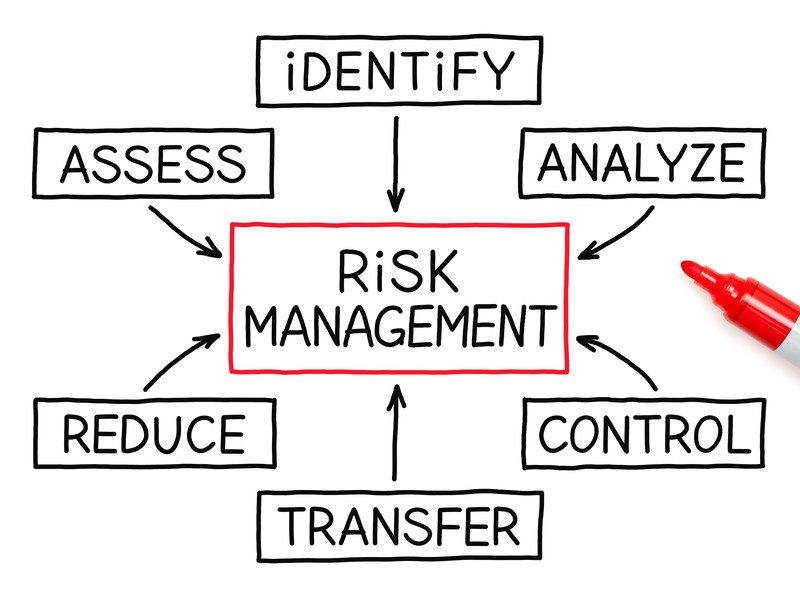 (Jeff Sorg, OnlineEd) – Risk anticipation for the real estate broker relies on the ability to identify problems that might eventually happen with a client or transaction. It’s essential for the broker to establish some strategies early on in their career to help recognize and avoid problems that might occur, instead of trying to deal with them after they occur.
(Jeff Sorg, OnlineEd) – Risk anticipation for the real estate broker relies on the ability to identify problems that might eventually happen with a client or transaction. It’s essential for the broker to establish some strategies early on in their career to help recognize and avoid problems that might occur, instead of trying to deal with them after they occur.
Some examples of risk anticipation and strategies to prevent risk are
- documentation and recordkeeping;
- disclosures;
- disclaimers; and
- documentation of information provided to and from the client.
Documentation and Recordkeeping
Good recordkeeping and transaction documentation practices are essential to managing and minimizing risk. When a problem does develop with a transaction, the broker will likely be asked to explain which actions were or were not taken to either cause or correct the problem, as well as to justify their actions.
As time passes, detailed memories about a transaction or event can become unreliable — or sometimes be altogether forgotten. Having written observations created at the time an event occurred will mostly be regarded as reliable evidence. In fact, in the case of litigation, contemporaneous memoranda are often accepted as an accurate record of events.
DEFINITION: Contemporaneous memorandum or documentation – a note written at the time of an event and stored in the transaction or client file.
Brokers should keep a file for each transaction or significant client event. Because it is difficult to anticipate problems that might arise in the future, proper documentation of any action taken at the time an event happens is always an excellent first line of defense against liability.
Here are some suggestions for real estate brokers to develop defensive recordkeeping practices and procedures:
- Document all sources of information received.
- Keep a phone log that summarizes all business calls.
- Save all email and text communications.
- Keep a complete transaction file that includes documentation of disclosures and disclaimers.
- Keep dated records of the types of housing each prospective buyer asked to view, the kinds of housing options offered (manufactured, single family, condominiums, etc.), and other services provided.
- Send the seller written updates about property showing activity and the feedback.
- Indicate on each correspondence who is receiving copies.
- Use confirmation letters to shift the burden of responsibility to the other party (“put the ball in their court”).
Disclosures
Be aware of and make all of your required disclosures promptly. These disclosures include the agency disclosure, conflicts of interest disclosure, seller’s property disclosure, environmental hazards disclosure, and others required by local law.
Disclaimers
While qualified to advise clients about selling and buying real estate, matters sometimes arise that will be outside of your area of expertise or beyond the scope of your real estate license. In these cases, you will want to use a written disclaimer to advise the client to seek the advice of a competent professional or service.
Documenting Information Provided by a Seller or Buyer
Your client might provide you with certain information or documents. Documents and information given to you by the client should be kept in your client file for future verification of the information or documents. You should also maintain a record of who asks for these verifications.
Risk Control
As soon as a liability issue is identified, steps should be taken to control it. Of primary importance is dealing with any complaint before it turns into litigation. Dealing with the complaint often means simple communication with the complaining party to try to minimize the issue or let them know you might be able to find an acceptable solution to the concern. Usually, failure to handle a complaint in its early stages will allow it to take on a life of its own. Quickly dealing with a complaint can prevent the complaining party from becoming angry and uncooperative, so be sure to address complaints promptly and before any opportunity for settlement becomes unlikely.
Risk control means addressing an issue when it first arises by attempting to find an agreeable solution as soon as possible. While a solution or settlement may seem expensive, a settlement made where liability is likely to exist can be cheaper than litigation. Even if you win the litigation, your legal fees and costs to achieve the win will usually exceed a settlement amount agreed to before the litigation.
###
OnlineEd Social Media
- Sign up here for more of our FREE Coaching Tips
- OnlineEd on Facebook
- Join Jeff Sorg on LinkedIn
- Subscribe to the OnlineEd blog, Blog OnlineEd
OnlineEd® is a provider of pre-licensing, post-licensing, and continuing education for real estate and mortgage licensees. For more information about OnlineEd, please visit www.OnlineEd.com.
OnlineEd® is a Registered Trademark
